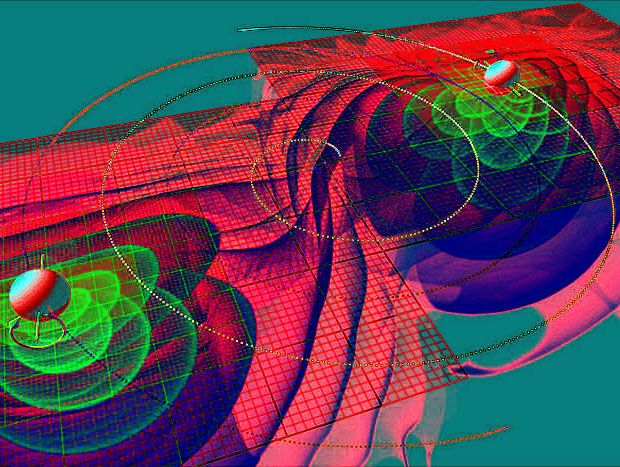Nobel goes to gravity find
 Three physicists have won a Nobel Prize for the discovery of ripples in space-time known as gravitational waves.
Three physicists have won a Nobel Prize for the discovery of ripples in space-time known as gravitational waves.
Rainer Weiss, a professor at the Massachusetts Institute of Technology, and Kip Thorne and Barry Barish, both of the California Institute of Technology, were awarded the Nobel Prize in Physics this week.
Gravitational waves were predicted by Albert Einstein, but took almost a century to be observed directly.
The Royal Swedish Academy called it “a discovery that shook the world.”
The discovery announced in early 2016 means experts now have an entirely new way to look at the universe.
Gravitational waves are an entirely new way of observing the most violent events in space and testing the limits of our knowledge.
Rainer Weiss and Kip Thorne and Barry Barish came together to ensure that four decades of effort allowed the waves to finally be observed.
In the mid-1970s, Rainer Weiss had already analysed possible sources of background noise that would disturb measurements, and had also designed a detector, a laser-based interferometer, which would overcome this noise.
Early on, both Kip Thorne and Rainer Weiss were firmly convinced that gravitational waves could be detected and bring about a revolution in our knowledge of the universe.
Gravitational waves spread at the speed of light, filling the universe, as Albert Einstein described in his general theory of relativity.
They are always created when a mass accelerates, like when an ice-skater pirouettes or a pair of black holes rotate around each other.
Einstein was convinced it would never be possible to measure them.
The LIGO project's achievement was using a pair of gigantic laser interferometers to measure a change thousands of times smaller than an atomic nucleus, as the gravitational wave passed the Earth.
So far all sorts of electromagnetic radiation and particles, such as cosmic rays or neutrinos, have been used to explore the universe.
However, gravitational waves are direct testimony to disruptions in spacetime itself. This is something completely new and different, opening up unseen worlds.








 Print
Print